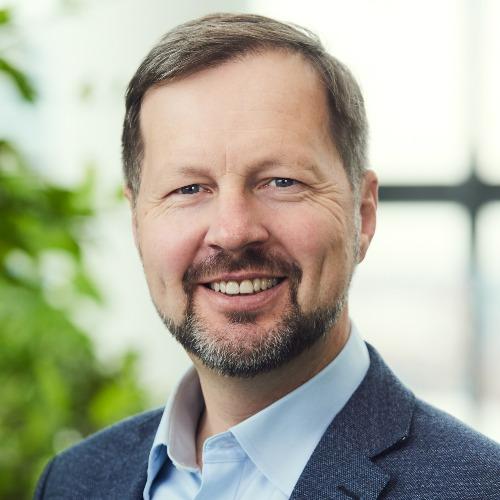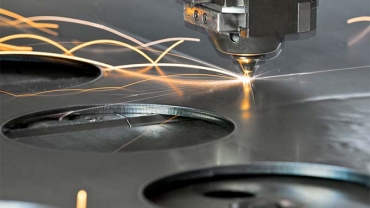
The German technology, media and telecommunications (TMT) sector had another record high deal volume on German assets in H1 2023. Within the sector, technology deals account for the largest share. Digitalisation is more important than ever because businesses urgently need to innovate, reconfigure and transform in response to dynamic market conditions and emerging technology, such as artificial intelligence (AI). Furthermore, the increasingly successful SaaS service business models in technology are very attractive to investors due to the high certainty of recurring revenue.
The technology M&A activity increased to a record 310 transactions despite the capital constraints caused by current interest rates. Media and Entertainment deal volume stabilised at a low level of around 20 deals after a steep drop in H2 2022. Telecommunication deals dropped to 12 transactions in H1 2023. However, especially infrastructure mega deals in telecoms still provide interesting opportunities to deploy large amounts of capital.
Your expert for questions

Gerald Schustereder
Partner Deals, Technology, Media and Telecommunications (TMT) at PwC Germany
Tel: +49 89 5790-5541
Email
Technology
Software
Within technology, software makes up for over 2/3rds of the deal volume in H1 2023. In this category, software publishers are dominant, with many small and medium-sized deals but also more sizable ones, such as the buyout of Software AG by Silverlake or the acquisition of GK Software by Fujitsu. Due to the importance of software to the economy and its attractiveness to investors, we expect this dominance to continue. Financial investors are especially interested in the sector, accounting for about 80% of the deals.
IT services
M&A in IT services is also quite dynamic, including custom software development, IT infrastructure outsourcing, and outsourcing complete business processes. Industry trends such as standardisation of infrastructure and application services enable scale advantages and will consequently further drive industry consolidation, especially for outsourcing providers.
Semiconductors
There are few M&A transactions on German semiconductor assets, such as the broadly discussed Elmos Semiconductor sale. The largest German player, Infineon, successfully acquired GaN Systems, a Canadian gallium nitride high-power transistor manufacturer. Furthermore, it sold its HiRel DC-DC converter business, including its hybrid and custom board-based power products, to Micross Components. Going forward, further smaller acquisitions are on the agenda.
Artificial intelligence and metaverse
AI and metaverse deals on German assets are not significant in terms of numbers yet but are expected to increase. German firms have been participating in deals as buyers; for instance, the enterprise software firm SAP placed three investments in generative AI market leaders Aleph Alpha (Germany), Anthropic (US) and Cohere (US/CA).
Media and Entertainment
On a global level, the media and entertainment industries are going through large shifts, e.g., streaming players coming from a pure growth phase to a profit prioritisation and possibly consolidation phase or video gaming and online gambling gaining an increasingly broad customer base. At the same time, individuals can be targeted very precisely now with offers and advertisements. The German industry structure is more focused on traditional media assets, however.
Much attention in the press has been gained from the portfolio optimisation and restructuring of print publication firms. That includes the announcement of Bertelsmann’s Gruner+Jahr to reduce their portfolio by ~80% in the number of publications. Further, Holtzbrinck sold Springer Fachmedien München GmbH, a Munich-based book publisher, to Unigestion. In the meantime, the market-leading rainbow press publication BILD announced a significant internal restructuring, reducing the number of localised editions and replacing a substantial portion of staff with AI technology. Presumably, traditional print publishing will continue to contract due to competition in consumers’ attention by social media.
Furthermore, ProSiebenSat1 Media SE has seen a continued stake increase by the Italian MFE-MediaForEurope NV, which now holds 28.87%, and Czech Republic-based PPF Group NV, which holds 15%. Several smaller transactions in the Media industry include ad agencies and internet portals, printing services, and movie (post)-production firms.
With many live events and concerts being booked out and trade fairs and cinemas getting more populated again, the live events industry could gain significant ground and recover from the complete halt during the coronavirus pandemic.
Any questions?
Contact our experts
Telecom
After the sale of Deutsche Telekom’s cellular towers and Vodafone’s Vantage Towers divestment in 2022 to financial investors, it is unlikely that more large cellular tower deals will be coming up anytime soon in Germany. Also, as a more regional or even global trend, we have observed that cellular tower firms seem to switch gears away from acquisitions and towards reducing debt and increasing profitability. That switch is certainly also due to the rising cost of capital.
Nevertheless, we expect some deal activity in the field of broadband networks in Germany. After a several-year period of heavy investments from first global financial investors and then local strategics, the highly profitable fibre extension opportunities are getting rarer, with the cost of labour and material rising and the cost of capital rising. However, as there are many subscale players in the market and the operational efficiency of various players is diverging significantly, there is financial pressure for subscale players on the one hand and value creation potential for buyers on the other hand. That combination makes the market attractive for consolidation plays. Visible signs of the lack of financial viability have been observed when several assets filed for bankruptcy earlier this year. This includes HelloFiber, the JV of InfraVia Capital Partners and Liberty Global, KKR- / John Laing-backed Glasfaser Direkt, and the local utilities owned HeLi NET Telecommunications.

Regarding telcos as buyers, we expect the local and regional trends to follow the international ones, i.e. telecom operators will continue attempting to pivot towards higher-growth revenue streams through capability-driven bolt-on acquisitions. While the traditional focus for side businesses was more on media, this became an increasingly difficult and low-margin space, with international streaming players gaining market share rapidly. Therefore, IT services fields such as cloud, data analytics, and cybersecurity are increasingly popular among telcos and remain strong candidates for M&A activity. Globally, some telcos are venturing into even less related fields, such as financial services, e-commerce, or healthcare.
Market outlook
Geopolitical conflicts and macroeconomic uncertainties are not expected to be resolved in the short term. Furthermore, while central banks are starting to implement interest rate hikes more carefully, they are signalling that further increases are still on the agenda, depending on macroeconomic developments. Rate decreases seem highly unlikely in H2. All of the above leads to PE buyers being more conservative despite large amounts of dry powder. We will likely continue to see regular buyer-seller price expectation gaps. Corporate buyers will proceed with their deals, driven primarily by their strategic agenda. However, highly capital-intensive transactions – such as the cellular tower consolidation deals in recent years – are likely to be postponed until financing conditions ease considerably. We, therefore, do not currently expect a significant increase in deal activity in H2 compared to H1.
Contact us

Gerald Schustereder
Partner, Deals, Technology, Media and Telecommunications (TMT), PwC Germany
Tel: +49 89 5790-5541









